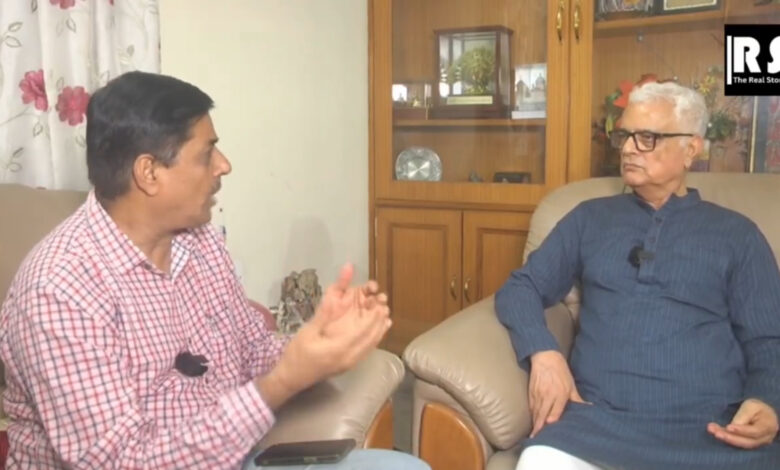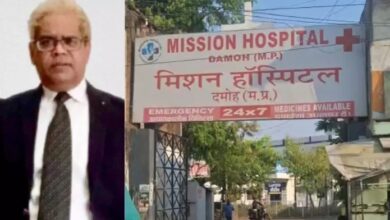
By Rajendra Sharma
In a state where electoral battles are as fierce as its political history, the ongoing special inclusive revision of voter lists in Bihar has emerged as a critical endeavor to fortify the democratic process. This exercise, aimed at ensuring that every eligible citizen can exercise their franchise, is both a logistical marathon and a testament to the Election Commission of India’s (ECI) commitment to fairness. In a recent podcast, I had the privilege of engaging with former Chief Election Commissioner (CEC) Om Prakash Rawat, whose insights illuminated the complexities and stakes of this initiative in one of India’s most politically vibrant states. With assembly elections looming, the revision is not merely administrative—it is the bedrock of Bihar’s democratic integrity.
The special revision, as Rawat articulated, is a meticulously planned effort to refine Bihar’s electoral rolls, ensuring they are accurate, current, and inclusive. Bihar’s demographic tapestry—marked by a sprawling rural population, urban pockets, and deep caste and community divisions—presents unique challenges. Historical issues like duplicate entries, deceased voters, and non-residents have occasionally undermined the credibility of voter lists. The ECI’s current mission is to eliminate these discrepancies while ensuring that no eligible voter, particularly from marginalized groups, is left behind. “The voter list is the foundation of any election,” Rawat emphasized. “A single error can erode trust in the entire democratic process.”
Inclusivity is the cornerstone of this revision. Bihar’s rural-urban divide and socio-economic disparities make voter registration a daunting task. Rawat highlighted the ECI’s targeted outreach to underrepresented groups—women, youth, and communities from Scheduled Castes (SCs), Scheduled Tribes (STs), and Other Backward Classes (OBCs). The commission has deployed special enrollment camps and door-to-door verification drives to bridge gaps in access. “Inclusivity isn’t about numbers alone,” Rawat noted. “It’s about amplifying the voices of those who are too often silenced.” These efforts aim to ensure that Bihar’s diverse electorate is fully represented, a critical factor in a state where electoral outcomes can hinge on narrow margins.
Technology plays a pivotal role in modernizing this process. The ECI has introduced digital tools, including online voter registration portals and mobile applications, to simplify enrollment and updates. These platforms allow citizens to verify details, correct errors, or raise objections to inaccuracies with ease. However, Rawat acknowledged the digital divide that persists in Bihar’s rural heartlands, where access to smartphones and internet connectivity remains limited. To address this, the ECI relies on traditional methods, such as Booth Level Officers (BLOs) who conduct physical verifications. This hybrid approach—blending digital innovation with grassroots legwork—reflects the commission’s adaptability in navigating Bihar’s complex terrain.
A persistent challenge, Rawat explained, is the issue of “ghost voters” and duplicate entries, which have long plagued Bihar’s electoral rolls. The special revision employs rigorous cross-verification, including voluntary Aadhaar linkage, to weed out inaccuracies. Yet, Rawat was unequivocal about protecting voter rights: Aadhaar is not mandatory, and safeguards are in place to prevent exclusion due to lack of documentation. “The ECI is resolute in ensuring no genuine voter is disenfranchised,” he assured. Multiple verification rounds and appeal mechanisms further ensure that erroneous deletions are minimized, addressing past concerns about voter suppression.
Transparency is another hallmark of this process. Rawat underscored the ECI’s commitment to involving political parties and civil society. Political stakeholders are invited to scrutinize draft voter lists, raise objections, and suggest corrections, fostering a collaborative environment. Civil society organizations, meanwhile, play a crucial role in raising awareness and assisting marginalized communities in navigating the registration process. This participatory approach not only enhances accountability but also builds public trust—a vital commodity in a state known for its high-stakes electoral contests.
The political implications of this revision cannot be overstated. With Bihar’s assembly elections on the horizon, an accurate and inclusive voter list is essential for a level playing field. Errors or biases in the rolls could cast a shadow over the legitimacy of the results, fueling distrust and potential unrest. Rawat stressed that the ECI’s goal is to create an environment where every eligible voter can participate without fear or hindrance. “A flawed voter list risks undermining the very essence of democracy,” he warned, underscoring the stakes as Bihar prepares for its electoral crucible.
Rawat also placed the revision within the broader context of India’s evolving democratic landscape. Drawing from his tenure as CEC, he advocated for continuous electoral reforms to keep pace with changing realities. Voter education, he argued, is critical to empowering citizens. “An informed electorate is the lifeblood of democracy,” he said, calling on the media and civil society to amplify voter awareness efforts. This holistic approach—combining meticulous revision, technological innovation, and public engagement—sets a robust precedent for future elections.
The special inclusive revision of Bihar’s voter lists is a testament to the ECI’s unwavering commitment to democratic principles. By tackling inaccuracies, bridging digital divides, and prioritizing marginalized voices, the commission is laying the groundwork for a fair and credible election. As Rawat aptly concluded, “Democracy thrives on participation, and the voter list is the first step toward enabling it.” With Bihar poised for another electoral showdown, this initiative will play a pivotal role in ensuring that the state’s 8 crore-strong electorate can shape its future with confidence and clarity.




